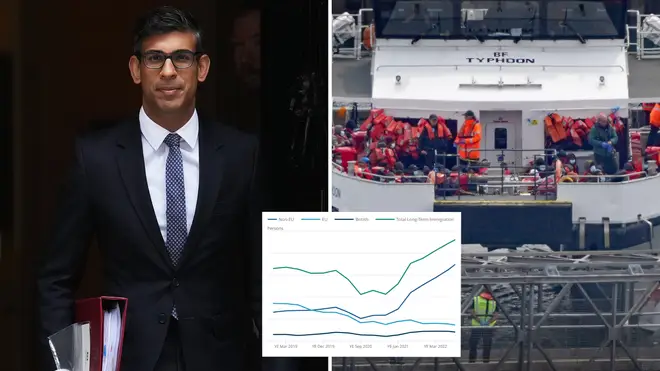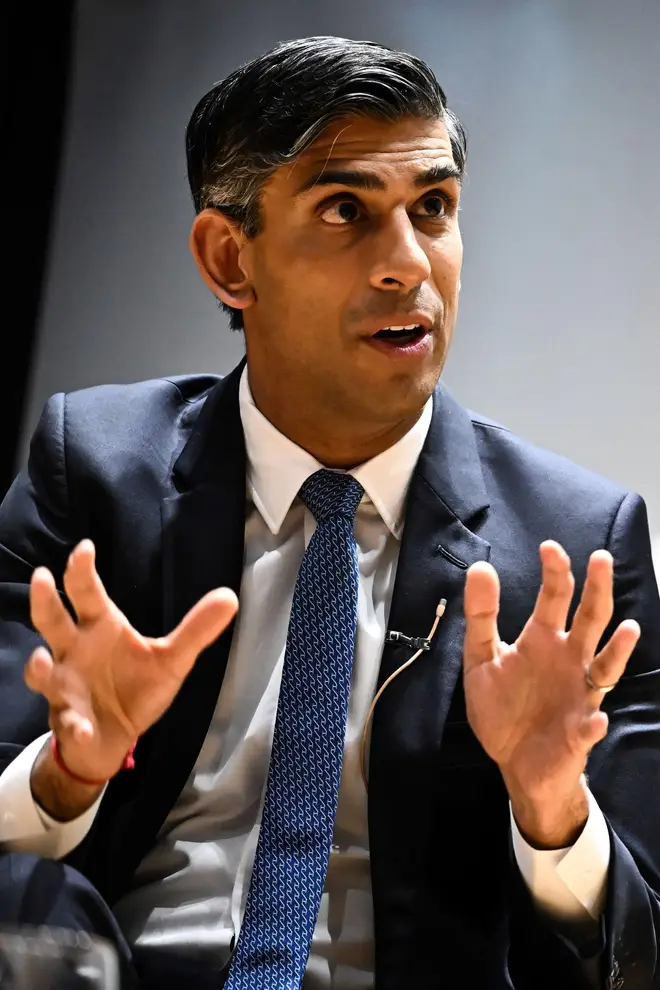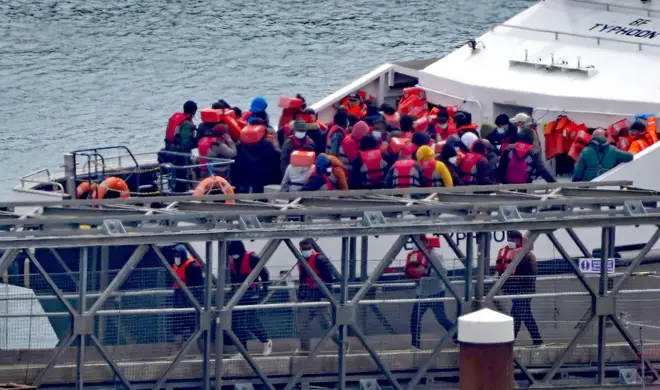
Oli Dugmore 4am - 7am
25 May 2023, 14:22 | Updated: 25 May 2023, 14:25

Rishi Sunak has admitted net migration is "too high" after official figures showed a record number of arrivals came to the UK last year.
Net migration in the UK soared to 606,000 in 2022, according to the latest official figures.
Some 1.2 million people arrived in the UK last year intending to stay for a year or more and 557,000 emigrated, adding 606,000 to the UK population.
The figure is up from 504,000 in the 12 months to June last year.
Speaking to This Morning, Mr Sunak said: "Numbers are too high, it's as simple as that, and I want to bring them down."
Asked whether numbers are 'out of control', he added: "Well, no, I think the numbers are just too high."
Listen and subscribe to Unprecedented: Inside Downing Street on Global Player
Meanwhile, the asylum backlog in the UK has hit a new record high as the immigration minister appeared to suggest processing claims faster could encourage more people to come to the country through illegal routes.
More than 100,000 people waited longer than six months for an initial decision on their case, the latest figures showed.
Immigration minister Robert Jenrick said he is "confident" the Government will clear the legacy asylum backlog by the end of 2023.
The comments came shortly after he suggested that processing migrant claims faster would likely "lead to an increase" in people crossing the Channel.
"I'm confident that we're going to get the legacy backlog cleared by the end of the year," he said.

Net migration figures have soared in recent years. When the Conservative party pledged to bring down net migration in 2019, figures stood at 271,000.
This year's figure is also up 118,000 compared to 2021 numbers.
The ONS said factors contributing to relatively high levels of immigration over the past 18 months include people coming to the UK from non-EU countries for work, study, and for humanitarian purposes, including those arriving from Ukraine and Hong Kong.
Ahead of the release of the figures, Stephen Kinnock criticised the government, telling LBC: "It will say that they've lost control of the issue.
"They have failed to have a strategy in place for our local labour market, and as a result of that, employers are being forced to reach for overseas immigration.
"We need a much more balanced approach, ensuring that we have the immigration we need of course, but that there's much more opportunity for skills, productivity training, workforce planning to get our economy firing on all cylinders again."
In recent days Rishi Sunak has attempted to distance himself from the Tories’ election pledge to reduce net migration.
Flying to the G7 summit in Japan earlier this month the PM was asked whether he stood by the manifesto pledge to bring the numbers down.
Rishi Sunak pointed the finger at his predecessors in No10, saying only: “I've inherited some numbers, I want to bring the numbers down."

The PM added: "I've said I do want to bring legal migration down. I think illegal migration is undoubtedly the country's priority, and you can see all the work I'm putting into that.”
The record levels of net migration are down to a "series of unprecedented world events throughout 2022 and the lifting of restrictions following the coronavirus (Covid-19) pandemic", the ONS said.
The director of the Centre for International Migration at the ONS said numbers arriving on humanitarian routes increased over the 12-month period.
Jay Lindop said: "The main drivers of the increase were people coming to the UK from non-EU countries for work, study and for humanitarian purposes, including those arriving from Ukraine and Hong Kong.
"For the first time since using our new methods to measure migration, we have also included asylum seekers in our estimates, with around 1 in 12 non-EU migrants coming via this route.
"There are some signs that the underlying drivers behind these high levels of migration are changing. As lockdown restrictions were lifted in 2021, we saw a sharp increase in students arriving.
"Recent data suggests that those arriving in 2021 are now leaving the country, with the overall share of non-EU immigration for students falling in 2022.
"In contrast, those arriving on humanitarian routes increased over the 12 months. Evidence also suggests immigration has slowed in recent months, potentially demonstrating the temporary nature of these events."
Rishi Sunak has already refused to commit to Boris Johnson’s manifesto pledge to bring down overall immigration levels. He says he wants immigration to fall but failed to stick to the pledge made by the Conservatives at the last general election.